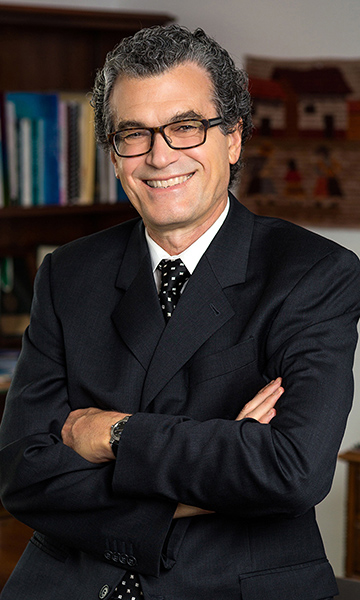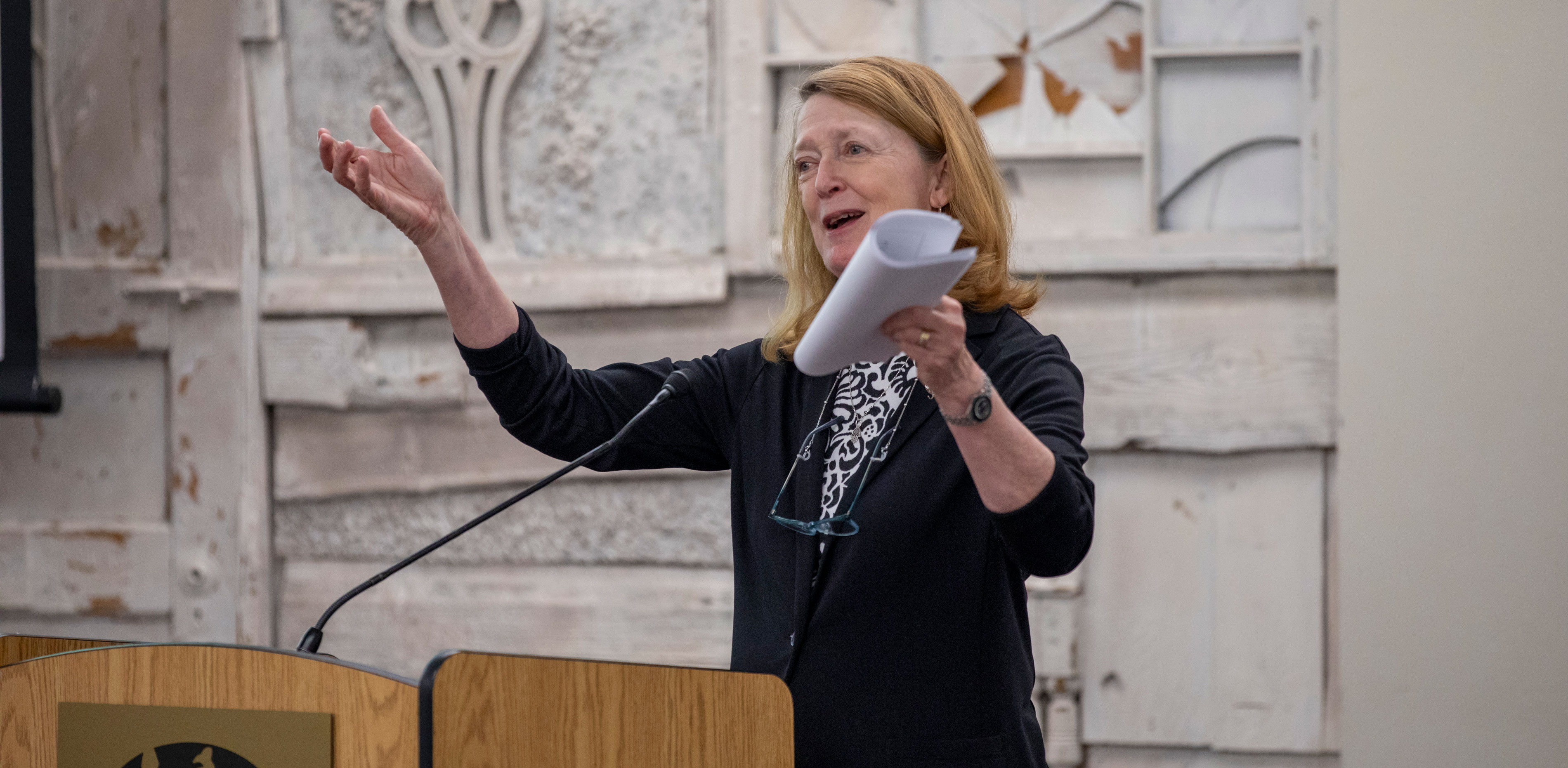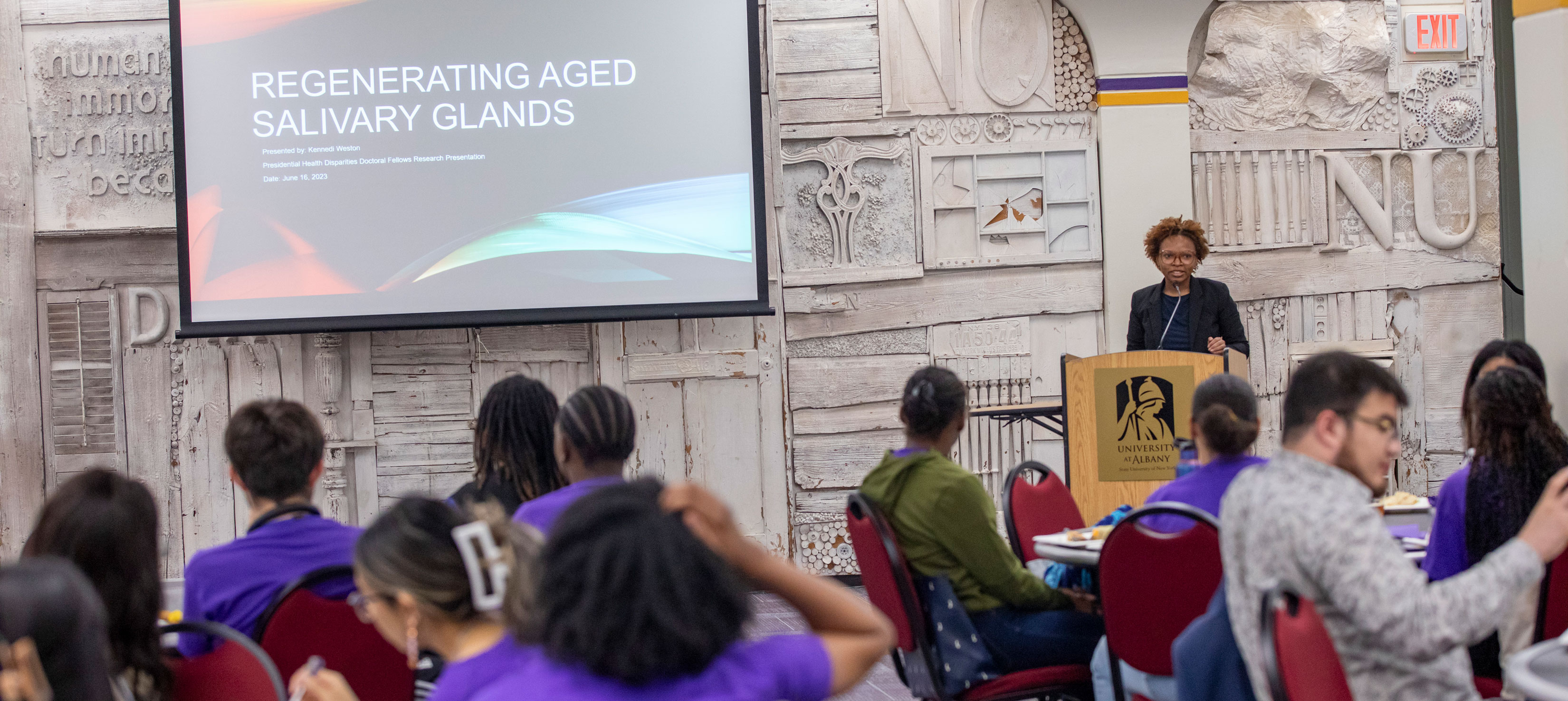Summer 2023 CEMHD Newsletter
2023 President’s Forum on Health Disparities Spotlights Community Engaged Research
The President’s Forum on Health Disparities, sponsored and organized by the CEMHD, is a annual signature event supported by UAlbany’s prestigious National Institutes of Health (NIH) S21 Award, The Endowment for Community-Based Health Disparities Research and Training.
The forums are intended to promote research on health disparities, foster engagement and collaboration, and contribute to the achievement of health equity.

This year’s Forum, held on April 21, featured Dr. Eliseo Pérez-Stable, the Director of the National Institute on Minority Health and Health Disparities (NIMHD), as the keynote speaker.
NIMHD is the lead organization at the National Institutes of Health (NIH) for planning, coordinating and evaluating minority health and health disparities research.
Dr. Pérez-Stable’s keynote address, titled Community Engaged Research: Pathway to Reducing Disparities, was attended by 127 participants, including community partners, government officials, researchers, faculty, professional staff, postdoctoral associates, and students.
A Reaction Panel followed the keynote, led by faculty engaged in community-based research, including:
- Dr. DeeDee Bennett Gayle from the Department of Emergency Management and Homeland Security, College of Emergency Preparedness, Homeland Security & Cybersecurity
- Dr. Blanca Ramos from the School of Social Welfare and the convenor of CEMHD’s Amsterdam Minority Health Task Force
- Barry Walston, MSW, a senior member of CEMHD’s Albany Minority Health Task Force who is currently with the AIDS program at NYSDOH and is past president of the Albany affiliate of the Black Child Development Institute
Following the reaction panel and Dr. Perez-Stable’s response, a Community Engaged Research Panel featured the work of four University researchers and their community partners and facilitated by Dr. Christine Bozlak from the Department of Health Policy, Management and Behavior at the School of Public Health.
Dr. Tomoko Udo — an associate professor from the Department of Health Policy, Management and Behavior and Epidemiology & Biostatistics and a recipient of the 2018 President’s Award for Exemplary Public Engagement for her work with Dr. Stephen Giordano, the Albany County Mental Health Commissioner — and Dr. Carmen Morano, from the School of Social Welfare, discussed their collaboration on both the Albany County Crisis Officials Responding and Diverting (ACCORD) program and the Albany Law Enforcement Diversion (LEAD) program.
Dr. Mariya Zheleva, from the Department of Computer Science, discussed her work on rural internet connectivity with community partners in northern New York that was that was recognized in her 2019 President’s Award for Exemplary Public Engagement.
Dr. Beth Feingold discussed her UAlbany research team’s ongoing work on sustainable food systems in the Capital Region with key collaborator, Natasha Pernika, the Director of the Food Pantries of the Capital District.
Additionally, Dr. Lindsey Disney from the School of Social Welfare and Dr. Rukhsana Ahmed from the Department of Communication discussed their project entitled Telehealth and COVID-19 Knowledge, Attitudes, and Practices in New York State Refugee Communities Survey.
Dr. Disney and Dr. Ahmed’s community data collectors, Haifa Fawzi, Ghada Alsulaiman, and Balqees Sayed, also spoke about their experiences in this participatory project.
Watch a full recording of the President’s Forum.
Fast Facts: Suicide Rates Among LGBTQA+ Teens
During the pandemic, LGBTQA+ high school students were about four times more likely to attempt suicide than their heterosexual peers.
In 2021, 69% of LGBTQA+ youth reported feeling persistently sad and hopeless. For heterosexual youth, that figure was 35%.
LGBTQA+ youth often feel less connected at school. Therefore, comprehensive strategies that improve connections with others at home, in the community, and at school might foster improved mental health among youths during and after the pandemic.
CDC’s What Works in Schools program has identified inclusive practices that benefit both LGBTQA+ students and their heterosexual peers.
Sources:
- LGBTQ+ Youth: Addressing Health Disparities with a School-Based Approach (CDC)
- Mental Health, Suicidality, and Connectedness Among High School Students During the COVID-19 Pandemic — Adolescent Behaviors and Experiences Survey, United States, January–June 2021 (CDC)
2023 SPRINTER Meeting
The CEMHD hosted a group of students involved in the Summer Program in Translational Disparities and Community Engaged Research (SPRINTER) for a day of research presentations and a tour of the RNA Institute on June 16, 2023.
The SPRINTER program — offered by SUNY Downstate Health Sciences University — is a summer research experience for undergraduates that combines basic science with health disparities and community-based research.
This year’s group of 20 students included participants from institutions in the downstate New York area, such as St. Francis College, Hofstra, LIU Brooklyn, and CUNY Hunter and Brooklyn; as well as UAlbany and Binghamton in upstate New York; and from out of state HBCUs Talledega College, Xavier University, and Winston Salem State University.

During their visit, the SPRINTER students were welcomed by:
- Dr. Annis Golden, Director of the CEMHD
- Dr. Paul Morgan, who directs the newly formed Institute for Social and Health Equity (ISHE), which now houses the CEMHD
- Dr. Elizabeth Vásquez, Associate Professor in the Department of Epidemiology & Biostatistics at the School of Public Health
Two health disparities doctoral fellows in the Department of Biological Sciences, who are also affiliated with the RNA Institute and supported by a generous award from the Hearst Foundations, presented their current research projects to the visiting group.
Health disparities doctoral fellow Esperanza Rosas is a second-year PhD student working with Dr. Gabriele Fuchs, Assistant Professor of Biological Sciences jointly affiliated with the RNA Institute in the College of Arts and Sciences.
Ms. Rosas' current research is looking at how RNA modifications influence translation, the process by which information from DNA is used to produce proteins in cells.

Kennedi Weston is a second-year PhD student working with Dr. Melinda Larsen, Professor of Biological Sciences, who is also affiliated with the RNA Institute.
Ms. Weston is studying regenerative medicine, with a specific focus on regenerating aged salivary glands, which play a critical role in many of our daily biological functions such as digestion, speech, thermoregulation and olfactory signals.
The visiting students ended their day by touring the RNA Institute, led by the Director Dr. Andy Berglund.
They were treated to a 3D presentation explaining the basics of RNA science and how toxic RNA is targeted to develop disease treatments. The 3D visualization is a tool that the RNA Institute researchers commonly use in projects such as those aiming to develop new small molecules designed to reduce RNA toxicity.


